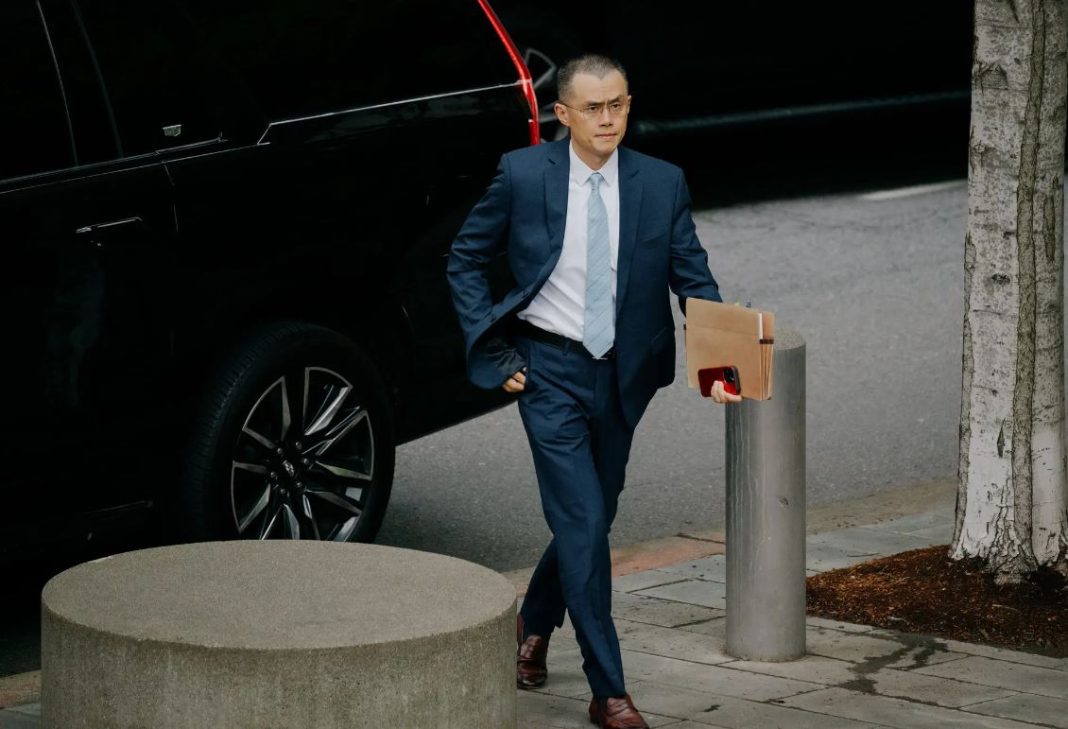Changpeng Zhao, the billionaire founder of the cryptocurrency exchange Binance, faced sentencing on Tuesday, receiving a lighter penalty than anticipated for a money-laundering violation. Despite pleading guilty to the charge, which involved providing access to Binance’s platform for terrorist groups and criminals, Zhao was sentenced to just four months in prison. This sentence starkly contrasts with the lengthy prison term received by another crypto executive, Sam Bankman-Fried, earlier this year.
The ruling, delivered by Judge Richard A. Jones in U.S. District Court in Seattle, acknowledged Zhao’s admission of guilt and expressed confidence that he would not reoffend. While prosecutors had sought a three-year sentence, labeling the crime as “unprecedented,” Judge Jones deemed a shorter term more appropriate, considering Zhao’s contrition and his contributions to building Binance.
Zhao, who appeared composed during the sentencing, expressed regret for his actions and acknowledged his failure. However, it remains unclear when he will begin serving his sentence, with his legal team requesting expedited proceedings and suggesting SeaTac, a federal prison in the Seattle area, as the facility for his incarceration.
This sentencing marks another significant development in the Justice Department’s efforts to address criminal activity within the crypto industry. Earlier this year, Sam Bankman-Fried, a rival of Zhao and founder of the now-defunct FTX exchange, received a 25-year prison sentence for fraud. The disparity between Bankman-Fried’s punishment and Zhao’s lighter sentence has drawn criticism from observers, who view it as a miscarriage of justice.
Despite Zhao’s relatively lenient penalty, the implications for other crypto executives facing legal scrutiny remain uncertain. Executives like Do Kwon and Alex Mashinsky, who have also been charged with crimes related to their crypto ventures, may face more severe consequences, highlighting the inconsistency in the legal treatment of individuals within the industry.
The sentencing of Zhao represents a significant departure from his previous standing as a leading figure in the crypto world. Once hailed as the founder of the most powerful crypto exchange, Zhao’s reputation suffered as Binance faced investigations into its operations. Despite Zhao’s dismissive attitude toward regulatory concerns, mounting legal pressure led to negotiations with federal prosecutors.
In November 2022, Binance agreed to a $4.3 billion settlement with U.S. authorities over allegations of permitting terrorist organizations to use its platform and violating American sanctions. Zhao’s guilty plea and resignation as CEO were part of the agreement, accompanied by a substantial fine. However, he retained his ownership stake in Binance, maintaining his status as one of the wealthiest individuals in the crypto sphere.
Throughout the legal proceedings, Zhao remained in the United States, unable to return to his home in Dubai. Despite his legal troubles, he has embarked on new ventures, including an online education platform called Giggle Academy and potential investments in biotechnology startups.
Despite his guilty plea and impending prison sentence, Zhao’s future remains intertwined with the crypto industry’s trajectory. With Binance’s continued operation and the industry’s resurgence in recent months, he stands to maintain his influence and financial interests, albeit under the shadow of his criminal conviction.

